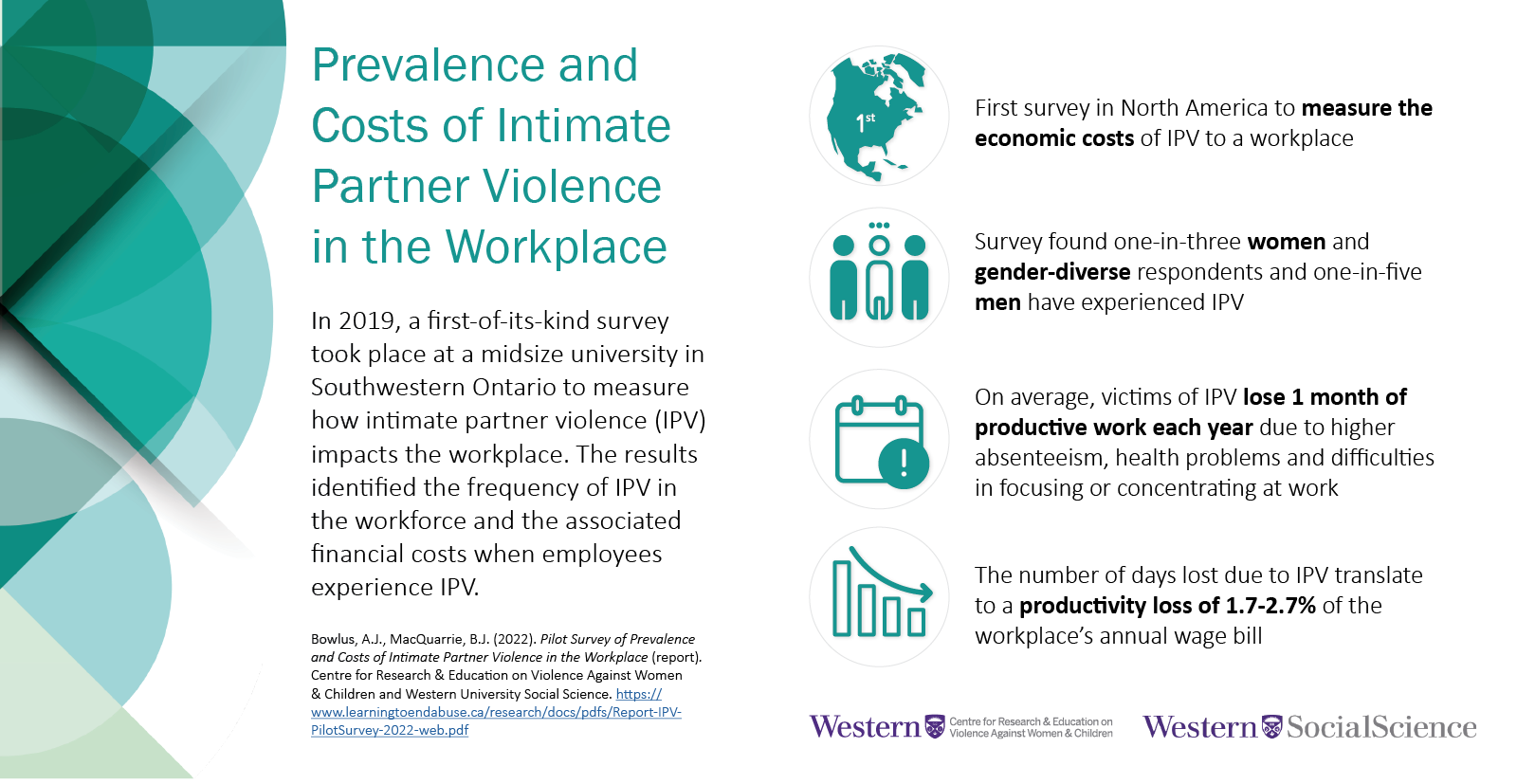News and Updates
Contact
Faculty of Social Science
Social Science Centre
Room 9438
Western University
T. 519-661-2053
F. 519-661-3868
E. social-science@uwo.ca
Pilot study finds intimate partner violence victims lose 1 month of productivity per year
June 20, 2022Results from a pilot workplace survey have shown significant spillover effects of intimate partner violence (IPV) on the ability of individuals to be productive while at work, impacting victims, their co-workers and their employer.
In 2019, researchers from Western Social Science and the Centre for Research & Education on Violence Against Women & Children (CREVAWC) conducted the first survey in North America to measure the economic costs of IPV to a workplace.
The survey found that 1 in 3 women and gender-diverse respondents and 1 in 5 men have experienced IPV. “Our survey echoes what we’ve seen in nationwide survey findings in terms of prevalence,” explained Dr. Audra Bowlus, one of the lead researchers on the project and professor of economics at Western. “These prevalence rates lend credibility to the ability of the survey to identify victims of IPV and provide a comparison group of non-victims needed to conduct our analysis. Importantly, they also indicate that this workplace is not immune to the effects of IPV.”
In addition, the survey found that, on average, victims of IPV lose one month of productive work annually due to higher absenteeism, health problems and difficulties in focusing or concentrating at work. That translates to a productivity loss of 1.7-2.7% of the workplace’s annual wage bill.
“The findings of the survey indicate the effects of IPV on workplace performance aren’t trivial. Employees are being affected daily by concerns for themselves, their children or their co-workers. For employers this translates into significant – often hidden – costs. Addressing these impacts through awareness building, disclosure training and service offerings helps employees but can also improve the employer’s bottom line,” said Barbara MacQuarrie, co-investigator of the study and community director at CREVAWC.
Importantly, the pilot survey did not rely on self-reports of IPV victimization or respondents attributing costs to IPV. Instead, Bowlus and MacQuarrie adapted a survey framework and cost-estimate methodology used previously in Latin American studies. The modifications opened the door to collect information on both IPV victimization and perpetration, the effects of IPV on co-workers, as well as the IPV experiences of all genders at the workplace. Given the success of the pilot, Bowlus and MacQuarrie plan to adapt the survey for other workplaces interested in measuring and addressing the effects of IPV on their employees.


